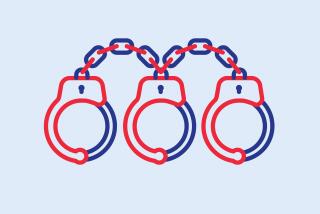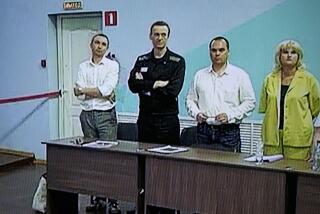Marinovich’s Sentence Puts Him in Treatment Program
- Share via
Taking advantage of a law that went into effect only nine days ago, Avenger quarterback Todd Marinovich won a victory in Los Angeles Superior Court on Monday by requesting to be convicted of felony heroin possession.
Marinovich’s sentencing agreement allowed him to enter a new phase in his drug treatment and sidestep sanctions--and possible jail time--for violating the conditions of his court-ordered rehab program.
Judge Stephen Marcus granted attorney Tom Johnston’s request to have Marinovich’s treatment switched to a more personalized program structured under Proposition 36, a voter-approved initiative that requires California judges to sentence most nonviolent drug offenders to treatment instead of jail or prison.
The change was sought after Marinovich failed to attend a required number of court-ordered counseling sessions, sources said.
Deputy Dist. Atty. Debra Starr argued that Marinovich should not have been eligible to enter the Proposition 36 program because his December arrest was well before the measure became law July 1.
But Starr was unable to convince Marcus, who said he was granting Marinovich’s request “from the perspective of fairness.”
“My belief is that the spirit of Proposition 36 favors treatment over incarceration,” Marcus said. “In order to achieve this benefit, [Marinovich] must be convicted.”
Marcus placed Marinovich on three years of felony probation and ordered him to return to court Aug. 1, when the conditions of his new treatment program will be issued.
Marinovich, who declined comment, also was ordered to perform 40 hours of community service, submit to police searches and seizures, register with police as a drug offender and pay fines totaling at least $535. He cannot use or possess any drugs, except those with a prescription, and must refrain from drinking alcohol.
The sentencing does not affect Marinovich’s status with the Avengers.
His drug-treatment program will be designed by a community assessment service center, a state-certified panel made up of rehab professionals working in conjunction with the probation department. Three levels of treatment--90 days, 180 days or 270 days--are offered, followed by up to a six-month after-care program, depending on the recommendation of the assessment panel.
“The benefit of this program is that it is finite,” Johnston said.
If Marinovich completes the program, he can petition the court to have his probation terminated and the case dismissed.
Marinovich, 32, was arrested Dec. 13 in downtown Los Angeles when police cited him for a missing license plate and found an undisclosed amount of heroin in his truck.
He faced up to three years in jail, but Marinovich was allowed to enter a yearlong drug-treatment program in exchange for a no-contest plea March 27. Sentencing was deferred for 18 months pending his completion of the program.
The regimented program required Marinovich to attend frequent counseling and group sessions in addition to being regularly tested for drugs.
Marinovich, a former USC standout, was a first-round draft pick of the Raiders in 1991 but had his NFL career derailed by drug problems. The Raiders released him before the 1993 season, and he spent three months in jail in 1997 after pleading guilty to growing marijuana.
More to Read
Sign up for Essential California
The most important California stories and recommendations in your inbox every morning.
You may occasionally receive promotional content from the Los Angeles Times.













